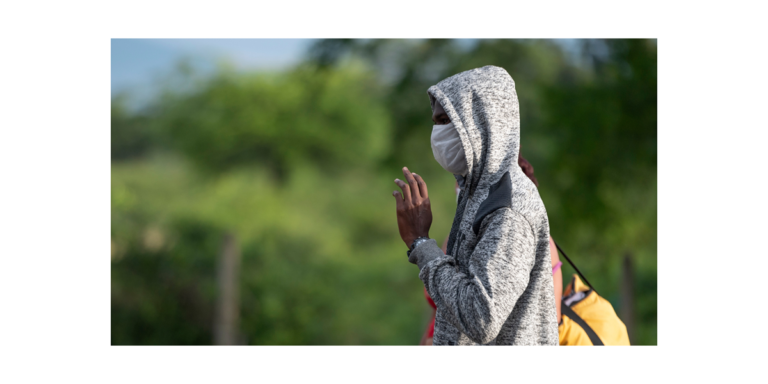Migration has always been a part of human history, with people moving for a variety of reasons. This phenomenon continues to shape our world as more people seek better opportunities and flee conflict, violence, climate change and environmental degradation.
On December 18, WHO will join the International Organization for Migration (IOM), alongside partners and global communities, to celebrate International Migrants Day. This international event not only celebrates migrants, but also serves as a catalyst to defend their rights and unite the global community to harness the transformative power of migration.
Migrants bring a multitude of skills that can benefit and enrich host countries and communities. They can serve as agents of change, creating opportunities for progress and contributing to social and economic growth. Their contributions to the health and well-being of the society in which they live are invaluable. For example, migrant health workers have been essential to the frontline response to the COVID-19 pandemic. Additionally, many countries are increasingly relying on migrant workers in their healthcare systems.
To unlock the full potential of migration as a solution to global challenges, it is essential to prioritize the physical and mental health and well-being of migrants. The WHO recommends specific actions to achieve this:
- Reorient health systems towards integrated and inclusive health services and programs for migrants, in line with the principles of primary health care and universal health coverage, to keep people healthy at all stages of life , and not just when they are sick.
- Address root causes that can affect the well-being of migrants, including social determinants of health, such as poor housing and working conditions, lack of education, inadequate access to water drinking and sanitation, food insecurity and vulnerability to violence.
- Invest in comprehensive data collection and monitoring of migrant health determinants, status and outcomes to assess accountability for progress towards the Sustainable Development Goals (SDGs) and other global goals and targets.
- Promote high-quality global research, strengthen knowledge production and build research capacity to understand and respond to the health needs of migrants and shape responsive policies and practices worldwide.
- Remove barriers to universal health coverage (UHC), including discrimination, cultural and linguistic factors and unaffordable costs, by ensuring that migrants, including those in irregular situations, benefit from legal and social protection through health systems and national insurance schemes.
- Include migrants in national public health strategies, including preparedness and response, because equitable and appropriate health services for all migrants produce positive outcomes for society as a whole.
- Address the shortage or lack of health professionals, services and programs capable of meeting the cultural and linguistic needs of migrants, for example by training competent health professionals capable of providing culturally competent care.
- Build sustainable consultative structures and mechanisms that optimize migrant participation in health projects.
The work of the WHO
Thanks to his Department of Health and MigrationWHO develops standards, guidance and tools to strengthen countries’ capacity to provide inclusive and respectful health services that meet the cultural, religious and linguistic needs of refugees and migrants.
Facilitate the development and implementation of national health strategies and regional action plans that address the health needs of people on the move and scale up the implementation of Global action plan for promoting the health of refugees and migrantsWHO also provides technical assistance, response and capacity building support.
Despite challenges in collecting information on the health of migrant populations, WHO is building a global evidence base on the health status of migrants and refugees and has set global research priorities to fill the gaps knowledge. Additionally, WHO offers evidence-based policy considerations in various health areas, to meet the specific needs of people on the move.
By taking immediate action to prioritize the health of migrants, we can unlock the full potential of migration and create a healthier, safer and fairer world for all.
Join the Health for All Film Festival
In 2024, WHO will continue to celebrate the power of audiovisual storytelling for health with everyone who cares about public health storytelling! The 5th Health for All Film Festival is launching a call for applications from November 1, 2023 to January 31, 2024. This year, there is a Special Film Prize on Migrant and Refugee Health.
We invite global public health institutions, non-governmental organizations, communities, public health activists and students, film schools and other relevant fields to submit their original short films that highlight the impact of migration and displacement on physical and mental health. the health and well-being of people on the move. The short films can also raise awareness of the rights and unique health needs of these populations, and show how access to health care for these populations contributes to their better health and well-being. Independent filmmakers, production companies and television networks are also invited to participate.
For more information on how to apply, please visit www.who.int/film-festival. A multilingual social media kit with visuals is also available at the bottom of the page to further promote this call and invite submissions of short films on migrant and refugee health. before January 31, 2024!
